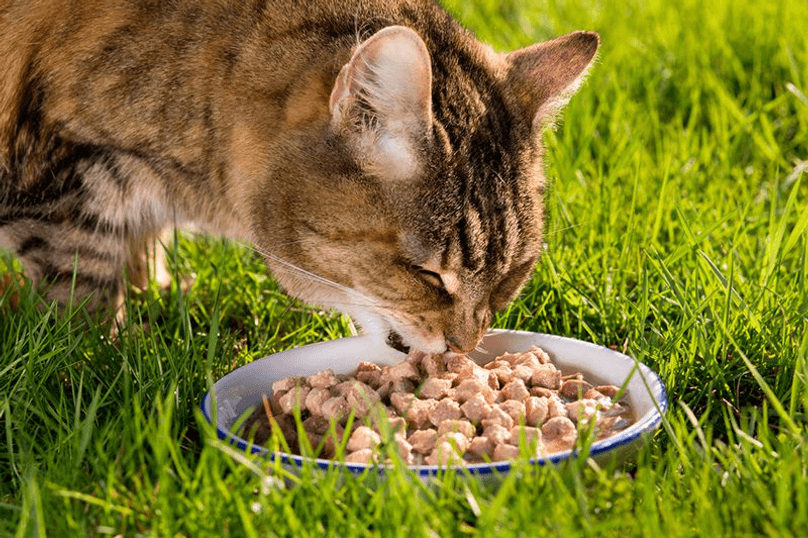
Q:I am a vegan, and I want to feed my cats a vegan or vegetarian diet. What’s your advice?
A:Veterinarians who specialize in nutrition recommend against feeding vegan or vegetarian diets to cats because research has shown that these diets are not nutritionally adequate and therefore not safe over the long term.
Moreover, vegan and vegetarian diets don’t make sense biologically for cats:
- Cats are obligate carnivores, meaning they require meat. They have evolved to eat small rodents, so their teeth and jaws are designed to grasp and tear prey, not chew and grind plant material.
- Cats have much higher protein needs than dogs or humans, and they must consume many amino acids , the building blocks of protein, because they either can’t produce them at all or can’t produce them in the quantities their bodies require. For example, taurine, found only in meat and other animal products, is essential to prevent heart failure and blindness in cats.
- Plant-based diets contain little of the amino acid methionine, which cats need in large quantities or they suffer dermatitis and poor growth. Another example is arachidonic acid, a fatty acid found in animals, but not plants, that is needed for proper function of the brain, muscles and immune system.
- Cats can’t digest carbohydrates well. In the wild, they remove the contents of the rodent’s stomach and intestines before they eat these organs.
- Cat saliva lacks the enzyme that starts carbohydrate digestion. Enzymes in the feline pancreas and intestines that digest carbohydrates are barely active. Cats also lack the enzyme that initiates glucose metabolism.
Obligate carnivores such as cats handle vitamins differently from omnivores, too. Omnivores can ingest beta-carotene in plants to make vitamin A, but cats don’t have this metabolic pathway, so they need to ingest vitamin A itself, which is found only in meat. Cats also can’t make vitamin D in their skin as humans do, so they need a dietary source, like liver or animal fat.
Compared with omnivores like dogs, cats have a small stomach and short intestines with few of the bacteria that help digest starches and fiber. To make matters worse, plants contain large amounts of fiber and phytate that block the absorption of some necessary trace minerals, including copper, iron and zinc.
Meat-based diets acidify the urine, whereas plant-based diets make it alkaline, which increases formation of urinary stones that can obstruct the urinary tract, especially in male cats.
Please honor this difference between yourself and your cats, and feed them the diet they need.
Editor’s Note:Research on feeding pets vegan, vegetarian, raw, homemade, or other non-traditional pet diets continues to evolve. We recommend discussing your pet’s dietary needs with your veterinarian before making changes.